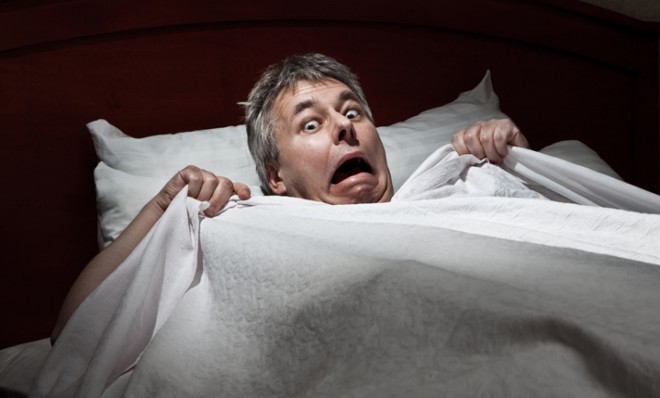Sleep could help you overcome your worst fear
Now possible: Exposure therapy while you snooze

A free daily email with the biggest news stories of the day – and the best features from TheWeek.com
You are now subscribed
Your newsletter sign-up was successful
Confession time: I have a crippling, irrational fear of birds. I believe the term for it is ornithophobia. It's to the point that if a bunch of pigeons are pecking around on the sidewalk and impeding my pathway, I will happily, albeit awkwardly, jog-step across the street to bird-free pavement.
Naturally, this makes my decision to live in a major metropolitan area such as New York a tad more challenging than it needs to be. But it would also make me a prime candidate for an experimental new type of exposure therapy that allows you to receive treatment while you're sound asleep.
Sleep, of course, is essential for hardwiring memory, which is why getting some shut-eye after an eight-hour study binge is essential if you want to score well on that economics midterm. Unraveling the intricacies of sleep-learning has proven a bit more complex, however. Up till now, researchers have manipulated things like a patient's spatial learning and motor sequencing while slumbering, but whether a person's emotions — i.e. their FEARS — could be affected was a question mark.
The Week
Escape your echo chamber. Get the facts behind the news, plus analysis from multiple perspectives.

Sign up for The Week's Free Newsletters
From our morning news briefing to a weekly Good News Newsletter, get the best of The Week delivered directly to your inbox.
From our morning news briefing to a weekly Good News Newsletter, get the best of The Week delivered directly to your inbox.
As it turns out, they probably could! In a new study published in the journal Nature Neuroscience, Katherina Hauner of Northwestern University details an experiment involving 15 individuals, who were slowly conditioned to feel "fear" from a few different triggers. Douglas Heaven at New Scientist describes it:
The volunteers were placed in an fMRI scanner and exposed to a series of neutral smells, such as lemon or mint. Each smell was paired with a photo of a face, and some of the pairings were also accompanied by a small electric shock.
Changes in the volunteers' sweat levels, as measured by their skin-conductance response (SCR), and MRI scans of their amygdala — a region of the brain associated with fear — showed that they had learned to fear the faces and smells that were accompanied by the shock.
Once conditioned, the participants slept for 40 minutes outside of the scanner. During this time they were exposed to one of the smells they had been conditioned to fear earlier, but without the electric shock. [New Scientist]
To break that down: A smell, a face, and a small shock were used in tandem like a classic Pavlovian conditioning experiment. When researchers exposed a participant to a particular smell associated with a particular face and a shock, fMRI scans indicated a fear response, as was expected.
And yet, the longer they were exposed to that specific smell while snoozing, the more their fear response diminished. When the participants woke up and were again shown the same scary faces, their reaction responses were indeed measurably lower. Exposure therapy appeared to work, albeit on a small scale.
"It's a novel finding," Hauner tells ScienceDaily. "We showed a small but significant decrease in fear. If it can be extended to pre-existing fear, the bigger picture is that, perhaps, the treatment of phobias can be enhanced during sleep."
A free daily email with the biggest news stories of the day – and the best features from TheWeek.com
So I wouldn't have to contend with the creepy gaze of fluttery, soulless pigeons? Sign me up.
-
 Political cartoons for February 15
Political cartoons for February 15Cartoons Sunday's political cartoons include political ventriloquism, Europe in the middle, and more
-
 The broken water companies failing England and Wales
The broken water companies failing England and WalesExplainer With rising bills, deteriorating river health and a lack of investment, regulators face an uphill battle to stabilise the industry
-
 A thrilling foodie city in northern Japan
A thrilling foodie city in northern JapanThe Week Recommends The food scene here is ‘unspoilt’ and ‘fun’